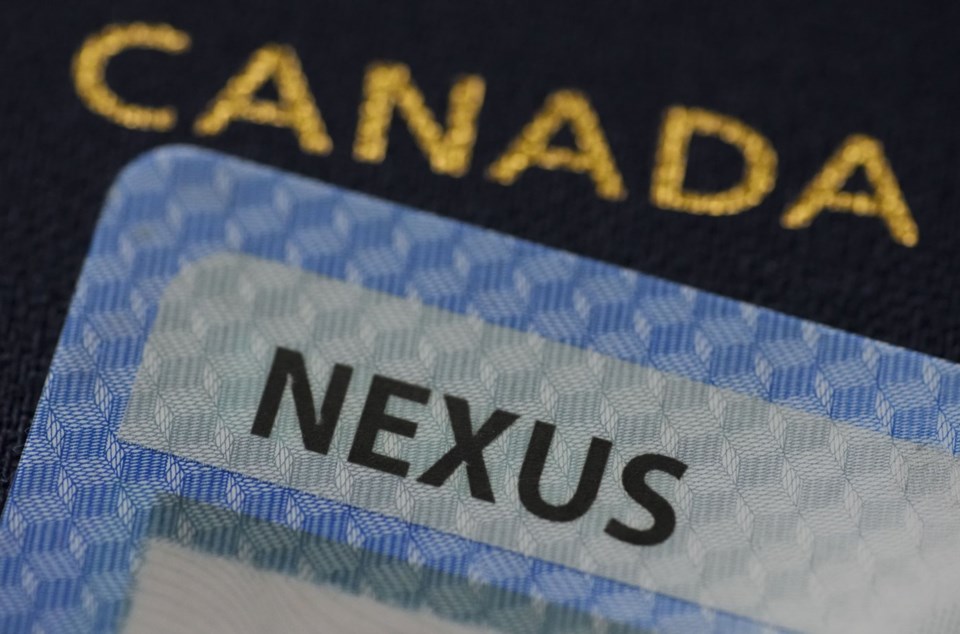OTTAWA — Canadians renewing or applying for Nexus travel cards can no longer choose an X gender marker, following an executive order from U.S. President Donald Trump that said the American government will only recognize male or female.
The change took effect in February 2025.
New applicants and people renewing their membership can apply using a Canadian passport with the "X" gender identifier but will have to select "male" or "female" for their Nexus membership, said Luke Reimer, spokesperson for the Canada Border Services Agency.
Current Nexus cards identifying members by a gender other than "male" or "female" will remain valid until they expire, the spokesperson said.
Nexus memberships are valid for five years and are meant to speed up border crossings between Canada and the United States.
The CBSA spokesperson said that while Canada and the U.S. share management of the Nexus program, the application process is housed on a U.S system operated by U.S. Customs and Border Protection.
The spokesperson said that while the Government of Canada recognizes the "X" gender identifier, it can't guarantee entry or transit through other countries.
"Not all countries have the same values and legal system that we have in Canada," Reimer said in a statement. "As a result, it is important for travellers to be informed about the legal framework and social customs governing sexual orientation, gender identity, gender expression and sex characteristics in the destination country."
Reimer said that the CBSA itself recognizes that individuals may self-identify with a gender identity other than male or female.
Canadians first got the option to pick an "X" gender marker on their Nexus passes in 2022. Between implementation in 2022 and March 2025, about 550 Nexus applications were submitted with "X" as the gender identifier.
Helen Kennedy, executive director of Egale Canada, said removing the "X" gender marker option from Nexus travel cards is "a step backward for the recognition and inclusion of trans, non-binary, and gender diverse people."
"While this policy stems from a U.S. executive order, its impact is felt on both sides of the border — forcing individuals to misidentify themselves in order to travel," Kennedy said. "Canada must uphold its commitment to gender inclusion and human rights by working with U.S. counterparts to find solutions that do not erase the identities of 2SLGBTQI people."
Sarah Mikhail, an associate lawyer at Smith Immigration Law, said the change is a "manifestation" of how the Trump administration's policy will affect trans and non-binary individuals outside the United States.
"What we are seeing right now is a policy that is at odds with our own policy and inconsistent and incompatible with it," she said, adding that it's too early to tell how Canada's passport policy could be affected.
Mikhail said the restriction is "distressing and troubling" for the trans and non-binary community.
She said trans and non-binary travellers may still face difficulties at the border if their passports don't match the gender selected on their Nexus card.
"I think the border can be a really stressful place and a really sometimes unknown environment for a lot of people. And going in knowing that there's this discrepancy and this is something that could possibly elicit questioning from an officer, and have to be looked at further, I think would be an incredibly, not just stressful experience, but invasive," she said.
The Government of Canada's travel health and safety web page says that people who have a Canadian passport with an "X" gender marker might face entry restrictions in countries that don't recognize their gender.
It says that people may be asked to provide binary sex information when travelling — even if their Canadian passport indicates an "X" gender marker.
This report by The Canadian Press was first published Aug. 6, 2025.
Catherine Morrison, The Canadian Press



